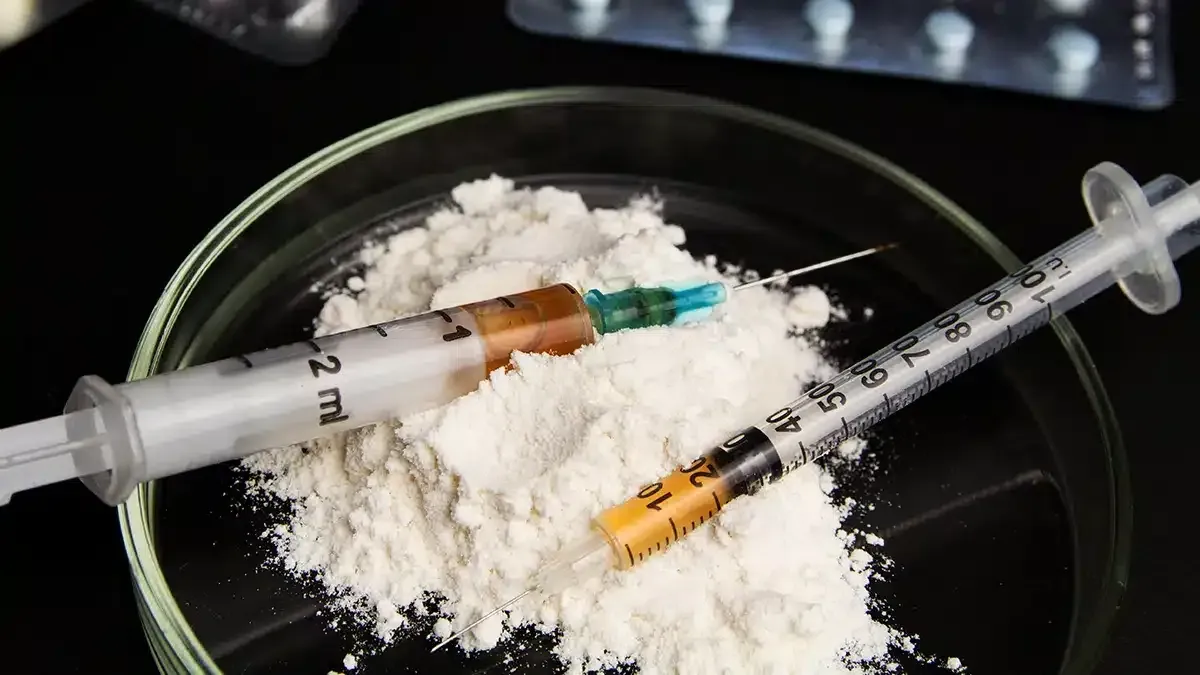Explore Our Blog
How heroin addiction affects your health
Advance Minds Blog
A safe space to explore subjects within the community such as mental health, substance abuse and personal identity.
Our safe space also provides the opportunity for real individuals to express their hardships and success through writing.
Heroin is a highly addictive opioid drug that can cause severe physical and mental health issues

Whether it's short-term or long-term use, heroin addiction has damaging effects on the body and mind. Understanding these effects is important for recognizing the severity of addiction and taking steps toward recovery.
Here's how heroin addiction affects your health:
1. Brain Function and Mental Health 🧠
- Changes in brain chemistry: Heroin rapidly crosses the blood-brain barrier, triggering an intense rush of euphoria by increasing dopamine levels. Over time, the brain becomes dependent on the drug to feel pleasure, making it harder to experience joy without it.
- Cognitive impairment: Long-term heroin use affects cognitive function, including memory, decision-making, and attention. Users often struggle with concentration and forgetfulness.
- Mental health disorders: Chronic heroin use can lead to depression, anxiety, paranoia, and other mood disorders. It can also exacerbate any pre-existing mental health conditions.
2. Physical Health Complications 🚨
- Respiratory depression: Heroin slows down the breathing process, which can lead to respiratory depression. In severe cases, it can cause breathing to stop, leading to death.
- Heart problems: Heroin use can lead to irregular heart rhythms, heart infections, and collapsed veins. The increased risk of heart failure is a significant health concern for long-term users.
- Liver damage: Heroin can lead to liver damage due to the accumulation of toxic substances from the drug. Over time, this can contribute to liver disease, cirrhosis, or liver failure.
3. Compromised Immune System 💪
- Increased susceptibility to infections: Heroin use weakens the immune system, making users more susceptible to infections. Common infections include pneumonia, tuberculosis, and other respiratory illnesses.
- Infectious diseases: Injecting heroin with shared needles can introduce dangerous bacteria and viruses, such as HIV/AIDS and Hepatitis B or C. The risk of these diseases is heightened through needle sharing and unsafe injection practices.
4. Organ Damage and Overdose Risk 💀
- Kidney failure: Long-term heroin use can strain the kidneys, causing kidney disease or failure. Dehydration and low blood pressure from heroin use contribute to kidney damage.
- Overdose risk: Heroin overdose is a major health risk. Symptoms include slow or shallow breathing, loss of consciousness, and potentially death. Overdose is more common when heroin is mixed with other substances, such as fentanyl, making it even more potent and unpredictable.
- Coma and death: An overdose can cause a person to slip into a coma, and without immediate medical intervention, it may lead to death due to respiratory failure.
5. Digestive System Issues 🍽️
- Constipation: Heroin slows down the gastrointestinal system, leading to chronic constipation. This is a common issue for people addicted to opioids, including heroin users.
- Bowel damage: Chronic constipation can lead to bowel obstruction, resulting in abdominal pain and other digestive problems. In some severe cases, it can cause the bowel to stop functioning altogether.
6. Skin and Injection Site Complications 💉
- Skin infections: Heroin users who inject the drug often develop abscesses, sores, and infections at the injection site. This is due to dirty needles, unsanitary conditions, and the body’s weakened immune system.
- Collapsed veins: Repeated injection can damage veins, causing them to collapse. This can lead to long-term issues with accessing veins for future injections and increasing the risk of infection.
- Skin necrosis: Long-term injection use can lead to skin necrosis (tissue death), often causing large, painful sores.
7. Impact on Relationships and Social Life 💔
- Social isolation: Heroin addiction often leads to isolation from family and friends, as the drug becomes the person’s main priority. This isolation can worsen feelings of loneliness, depression, and anxiety.
- Relationship problems: Heroin addiction can strain relationships with family, friends, and romantic partners. Trust issues, erratic behavior, and withdrawal from social activities can cause irreparable damage to personal relationships.
- Legal and financial consequences: People struggling with heroin addiction often engage in illegal activities to obtain the drug, such as theft or drug trafficking. These behaviors can lead to legal problems, financial ruin, and imprisonment.
8. Risk of Relapse and Long-Term Recovery 🚶
- Relapse potential: Heroin addiction is notoriously difficult to overcome, with a high potential for relapse. Withdrawal symptoms like intense cravings, anxiety, muscle pain, and insomnia can drive individuals back to using heroin to alleviate these effects.
- Ongoing treatment is essential: Long-term recovery requires comprehensive treatment that includes therapy, medication-assisted treatment (MAT), and support groups. Without sustained care, the risk of relapse remains high.
Final Thoughts
Heroin addiction has devastating effects on the body and mind, causing physical, mental, and emotional damage.
The longer someone uses heroin, the more severe these effects become.
However, recovery is possible with the right treatment and support.
Seeking help as soon as possible can prevent further harm and improve the chances of a successful recovery. 🌱💙

















